True farm to table experience in San Juan Capistrano
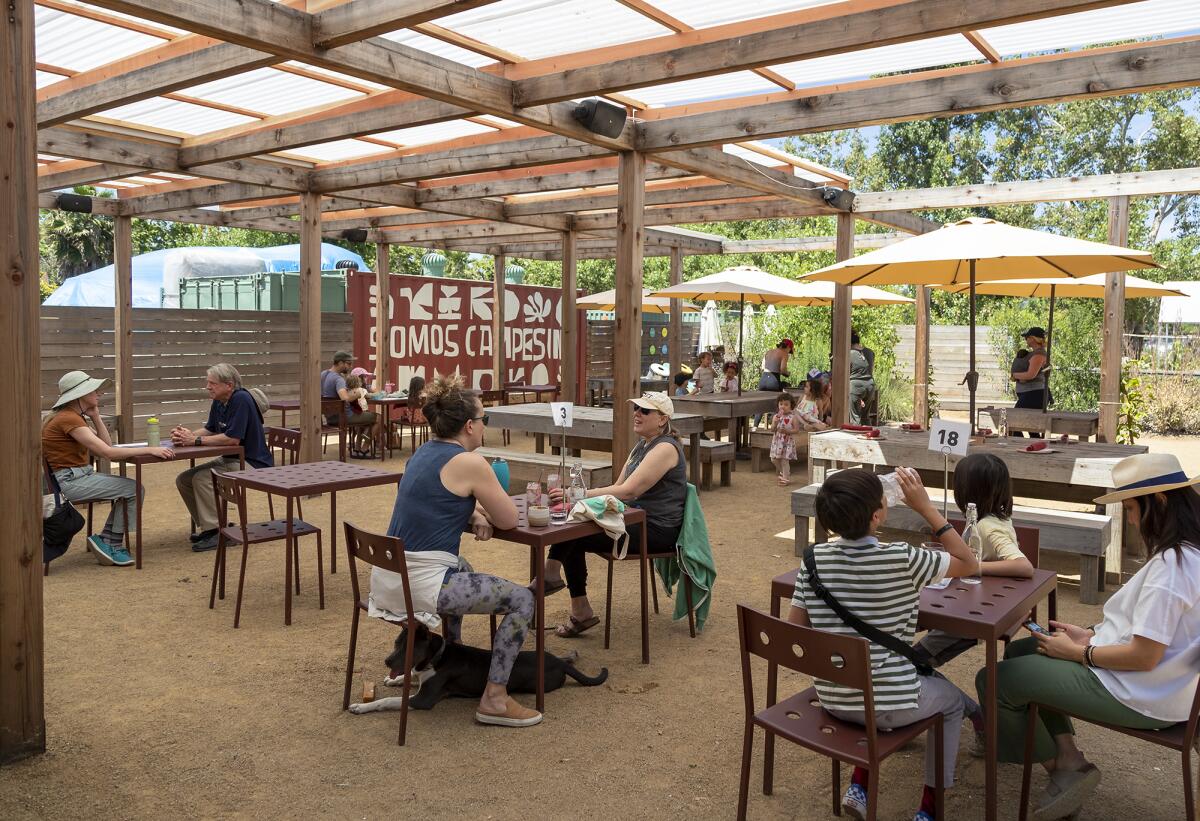
- Share via
San Juan Capistrano — There are many Orange County restaurants that boast a farm-to-table menu, but Campesino Café may be the only restaurant situated on said farm. The newly opened casual eatery at the Ecology Center in San Juan Capistrano serves a menu that nourishes the community in more ways than one.
“Everything comes from our farm and our fermentation lab,” said Evan Marks, founder and executive director of the Ecology Center.
Founded in 2008, the Ecology Center is a 28-acre Regenerative Organic Certified farm and education center that host a variety of events and programs, all aimed at creating an abundant future.
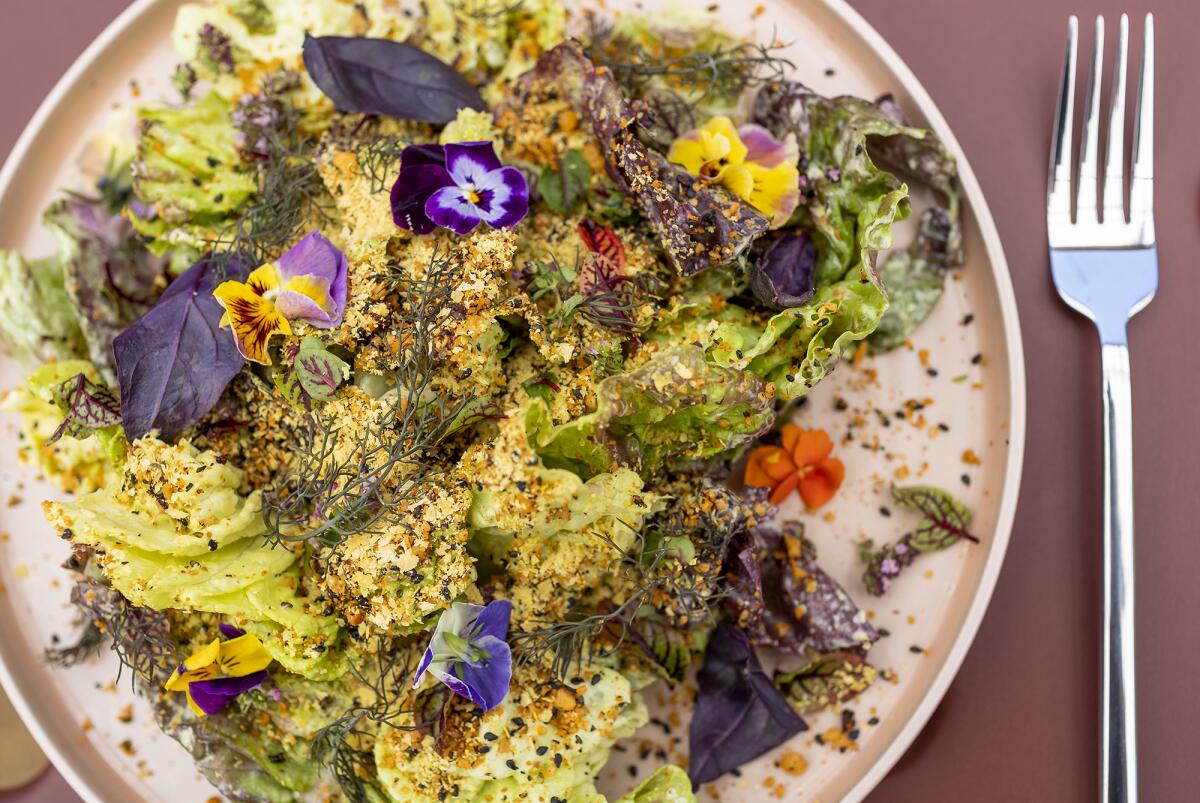
“Campesino is the Spanish word for farmer,” Marks said. “I spent about seven years in Latin America, and part of the journey in pretty much every country I went — from Peru to Mexico to Costa Rica — was identifying with the campesino as the caretaker of the land. That is ultimately what the Ecology Center seeks to be as well.”
The Ecology Center’s dedication to ecological foodways can be found in current projects like an apprenticeship program that teaches “the next generation of farmers, chefs, and food system changemakers.” Its Nourishing Neighbors program, which donates 20% of what is grown on the farm to the food insecure and the farm stand, is open seven days a week with a designated section of produce available free of charge to promote equity.
Serving well-prepared food has also been a long-standing practice of the center with the Community Table dinner series, prepared by guest chefs hosted twice a month, and the annual Green Feast, the center’s cornerstone fundraiser. Campesino Café is another way the Ecology Center is continuing its mission.
“The design of the organization was to always be a thought leader and an incubator for the next generation,” Marks said. “We have had this vision of a food center for so long.”
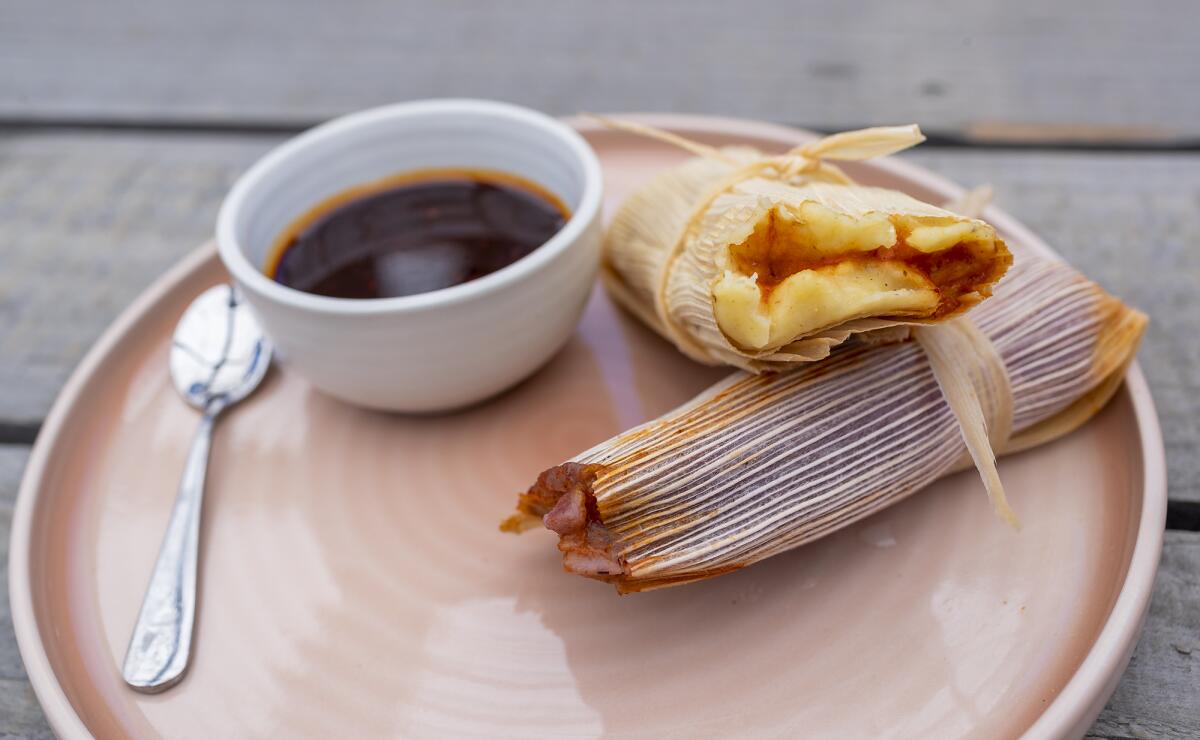
As a Regenerative Organic Certified farm, the Ecology Center not only follows agricultural practices that benefit the land, but business practices that consider the health and well being of people, animals, and the planet.
“We are pretty much the only farm that is certified Regenerative Organic in Southern California,” Marks said. “You first have to take poisons off the land, so you have to be an organic certified farm … the next level up of making your farm non-toxic is regenerative, [which means] caring for your work force and your people, paying everyone a living wage.”
Since synthetic fertilizers and pesticides can destroy soil, leave toxic residue on produce and be harmful to farm workers, they aren’t used at the center. The health of soil is measured through the quantification of organic matter and specific patterns of crop rotation are implored.
“We measure the health of the soil through the rotation and the menu is designed to tell that story,” Marks said. “It is a four-year rotation that symbolizes the health of the land. If we grew strawberries like many conventional farmers would do in the same land year after year, the only way we could do that is by poisoning the soil with fumigants.”
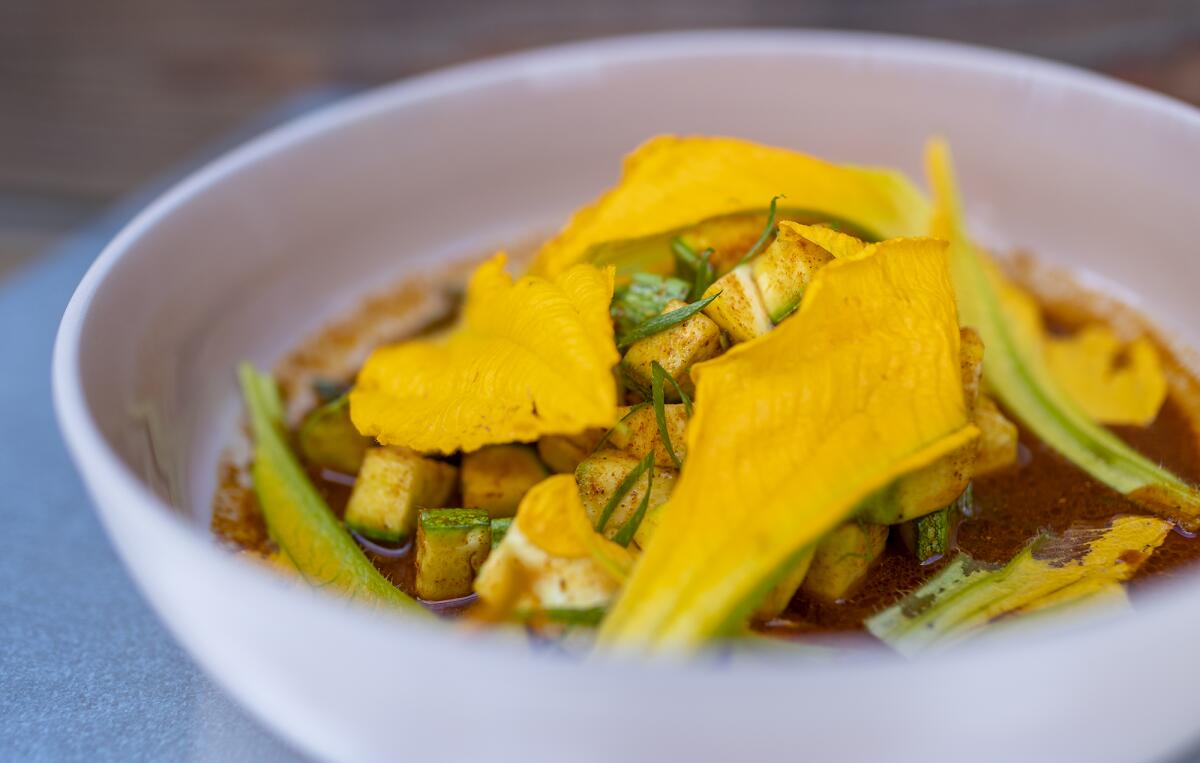
The menu reflects the crop rotation by being divided up into four sections. “Fruit Forest” includes dishes that utilize in-season fruit, like a goat’s milk yogurt parfait with farm granola, berries and honey. The “Cover Crop” section features items made from organisms that add nutrients back into the soil, like a fermented vegetable salad made with herbs, crunchy cover crop grains and seeds all dressed in a guajillo vinaigrette. “Market Garden” has substantial salads, like a raw squash and squash blossom dish and “Milpa” offers roasted vegetable tamales in both blue and yellow corn masa and charred vegetable pozole with hominy and herbs served in a rich chile broth.
The cafe also offers a selection of coffee drinks and agua frescas, as well as teas and kombucha that, like the side of pickles and housemade jams, come from the center’s fermentation lab. Marks said he was inspired to start the lab by his time spent at Camp Joy, a homestead established in 1968.
“What I learned at Camp Joy is everything you grow has value, there is no such thing as waste,” Marks said. “And we need to add value to a lot of our ingredients to make the farm work.”

So extra strawberries get turned into jam or strawberry vinegar, and cabbage becomes sauerkraut. An example of the zero waste menu at work is the Upcycled Almond Pudding, made from by products of the almond milk the cafe makes for its coffee drinks and horchata.
“So we take the waste and we upcycle it into this pudding that is a little bit of the almond butter and almond meal, with fresh fruit,” Marks said.
Diners order from a window set into a shipping container and then take a number to the wooden tables and chairs situated under a covered patio not far from the farm stand. Water, napkins and utensils are available on a service station.
The menu will change seasonally and Marks said further expansion of Campesino Café has already been approved.
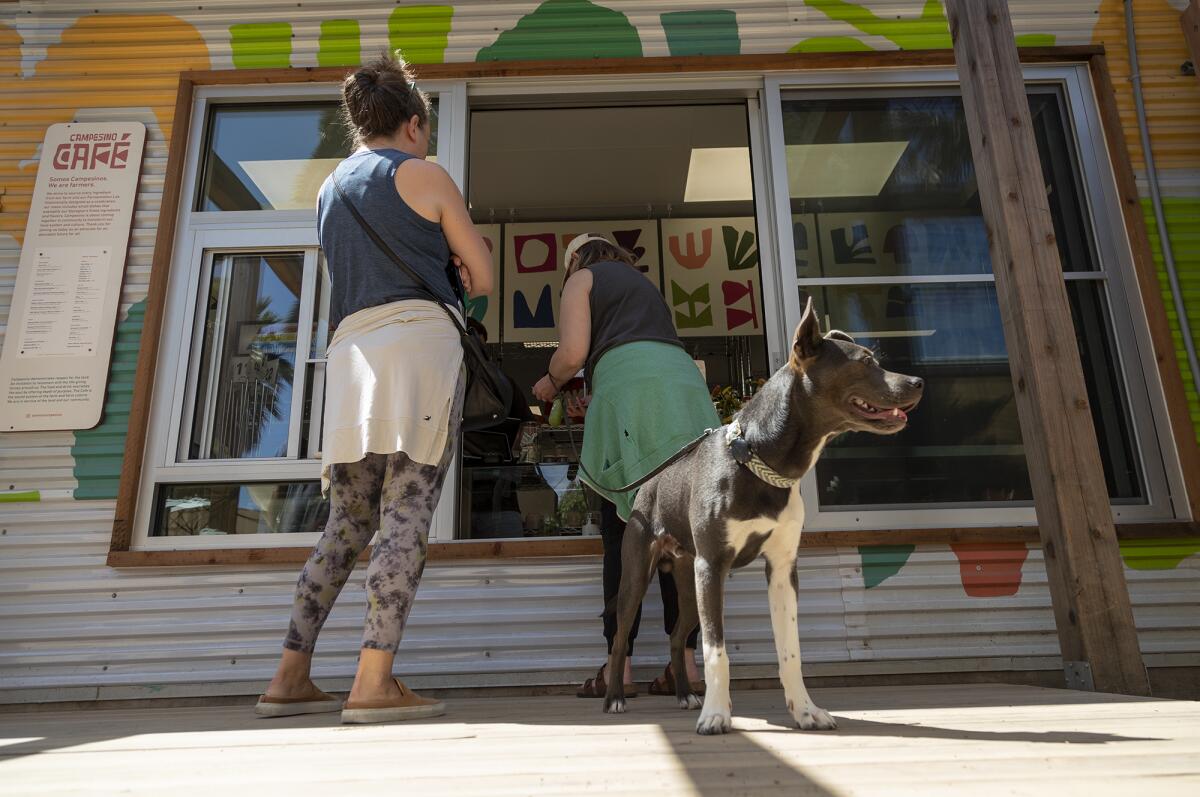
“This is 1.0,” said Marks. “The 2.0 is a big outdoor kitchen that is going to be built.”
A comal used to make tortillas and a pizza oven for fermented sourdough pizzas are among the plans Marks has for the foreseeable future, along with continued support of the land and of course, the people.
“It is natural for us to expand and to meet the needs of the community,” he said.
All the latest on Orange County from Orange County.
Get our free TimesOC newsletter.
You may occasionally receive promotional content from the Daily Pilot.




